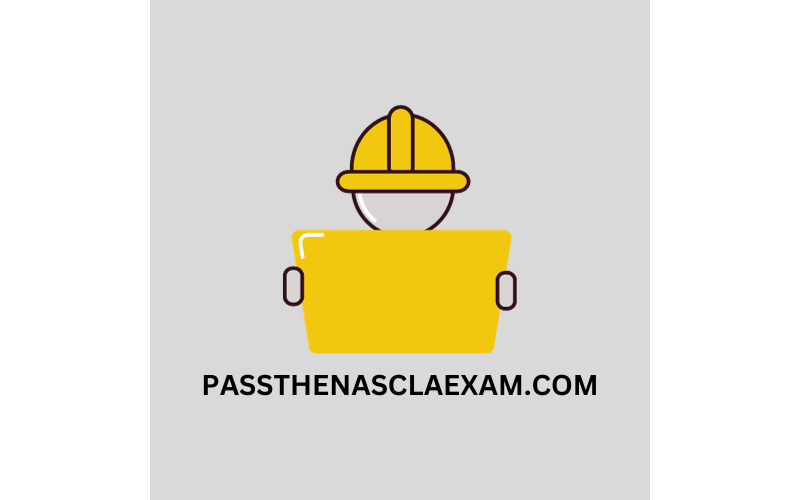NASCLA License Requirements Explained: Your Comprehensive Resource

The NASCLA license is a multi-state contractor’s license designed to simplify the process of working across state lines. To obtain this license, candidates must meet several key requirements, which vary slightly depending on the state in which they are applying. NASCLA license requirements Generally, applicants must demonstrate experience in the construction industry, pass the NASCLA Accredited Examination, and prove financial stability through credit reports and financial statements. The examination tests knowledge in areas such as business management, construction law, and project management. Additionally, candidates must provide proof of liability insurance and workers’ compensation coverage. Meeting these requirements ensures that contractors are well-prepared to handle the demands of multi-state operations and adhere to industry best practices.
How To Navigate NASCLA License Requirements?
Successfully navigating NASCLA license requirements involves careful preparation and attention to detail. Start by researching the specific requirements for each state where you intend to operate, as there can be variations in criteria. Make sure to gather all necessary documentation, including proof of experience, financial statements, and insurance certificates. It is also essential to prepare thoroughly for the NASCLA Accredited Examination. Consider investing in study materials or courses that focus on the exam content, including construction law, business management, and safety regulations. Keeping track of deadlines and submission requirements is crucial to avoid delays. By staying organized and proactive, you can streamline the licensing process and enhance your chances of success.

A Complete Guide To NASCLA License Requirements For Professional Certification
The NASCLA license represents a significant advantage for contractors seeking to work in multiple states, offering a streamlined certification process. To obtain this license, candidates must first meet experience requirements, which typically involve several years of proven work in the construction industry. NASCLA license requirements Applicants must then pass the NASCLA Accredited Examination, which covers a broad range of topics including business operations, construction practices, and legal issues. Financial stability is another critical requirement, demonstrated through detailed financial reports and credit evaluations. Additionally, candidates must provide proof of insurance, including general liability and workers’ compensation coverage. Completing these steps ensures that contractors are equipped to handle complex projects across different jurisdictions while maintaining high standards of professionalism.
NASCLA License Requirements: Important Considerations For Contractors
For contractors, obtaining a NASCLA license involves several important considerations. One of the primary factors is ensuring that all experience and qualifications align with the requirements outlined by NASCLA. This includes documenting relevant work history and demonstrating expertise in various aspects of construction and project management. Additionally, contractors must prepare for and pass the NASCLA Accredited Examination, which requires a solid understanding of industry practices and regulations. Financial documentation must also be thorough and accurate, reflecting the contractor’s ability to manage business operations effectively. nascla license requirements Insurance requirements are another critical aspect, with proof of coverage needed to protect against potential risks. Addressing these considerations diligently helps contractors meet NASCLA standards and operate efficiently across multiple states.
Understanding NASCLA License Requirements: Your Key To Certification
Achieving NASCLA certification is a significant step for contractors aiming to expand their business across state lines. nascla license requirements Understanding the specific requirements is crucial for a smooth certification process. The NASCLA license requires candidates to demonstrate substantial experience in the construction industry, pass the NASCLA Accredited Examination, and provide comprehensive financial documentation. This includes showing proof of creditworthiness and financial stability. Insurance requirements, such as general liability and workers’ compensation, must also be met to ensure that contractors are protected against potential risks. By thoroughly understanding and meeting these requirements, contractors can position themselves for success and take advantage of the opportunities that a NASCLA license provides.
NASCLA License Requirements: A Detailed Look At What’s Required?
Obtaining a NASCLA license involves a detailed process with specific requirements that must be met to ensure eligibility. nascla license requirements Applicants are required to show extensive experience in the construction field, often demonstrated through detailed work history and project documentation. Passing the NASCLA Accredited Examination is a significant component, testing knowledge in areas such as business management, construction law, and safety regulations. Financial stability is assessed through credit reports and financial statements, ensuring that candidates can manage their business effectively. Insurance requirements include providing proof of general liability and workers’ compensation coverage. Meeting these requirements involves careful preparation and adherence to NASCLA’s standards, which ultimately enables contractors to operate seamlessly across multiple states.
Conclusion
The NASCLA license is a valuable credential for contractors aiming to streamline their operations across state boundaries. Understanding and meeting the NASCLA license requirements is essential for achieving certification and ensuring compliance with industry standards. By thoroughly preparing for the NASCLA Accredited Examination, maintaining accurate financial records, and securing the necessary insurance coverage, contractors can position themselves for success in a competitive marketplace. Navigating these requirements with diligence and attention to detail will not only facilitate a smoother licensing process but also enhance professional credibility and operational efficiency. With the right preparation and a clear understanding of the requirements, contractors can leverage the NASCLA license to expand their business and thrive in diverse regulatory environments.







